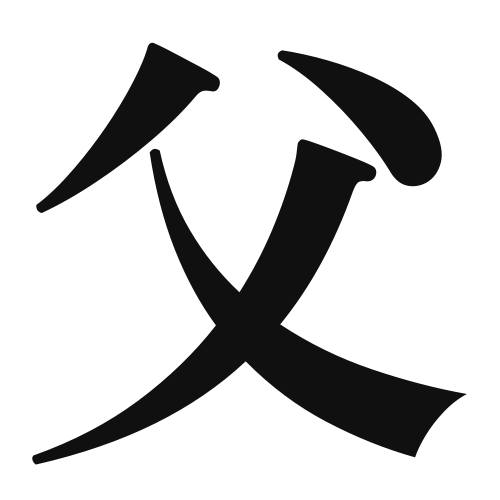1. Overview of Meaning
The kanji “父” (pronounced “chichi” or “fu”) means “father” in Japanese. It represents the male parent and is a fundamental term in family relationships.
2. Formation and Radical
The kanji “父” is a pictogram, originally depicting a man with a beard, symbolizing a father figure. The radical of this kanji is 父, which also means “father” and is used in other related kanji.
3. Examples of Usage
Common words and phrases that include “父” are:
- 父親 (chichioya) – father
- 父さん (tousan) – dad
Example sentences in daily conversation:
- 私の父は教師です。 (Watashi no chichi wa kyoushi desu.) – My father is a teacher.
- 父さん、ありがとう! (Tousan, arigatou!) – Dad, thank you!
4. Synonyms and Antonyms
Similar kanji with related meanings include:
- 親 (oya) – parent, which can refer to either mother or father.
Antonyms include:
- 母 (haha) – mother, representing the female parent.
5. Cultural and Historical Background
The concept of “父” is deeply rooted in Japanese culture, where respect for parents is emphasized. In traditional Japanese families, the father often held a significant role as the head of the household.
Proverbs and idiomatic expressions related to “父” include:
- 父の背中を見て育つ (Chichi no senaka o mite sodatsu) – “To grow up watching one’s father’s back,” meaning to learn from one’s father by observation.
